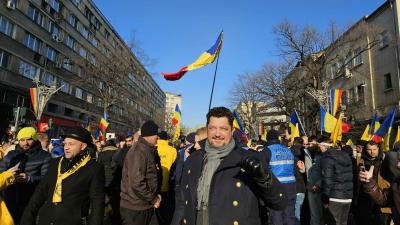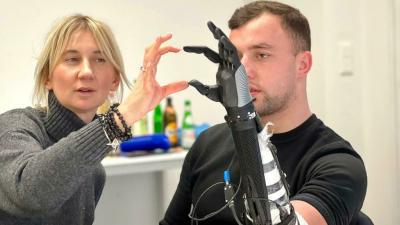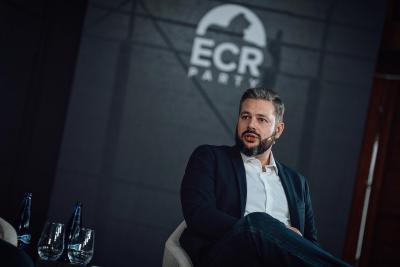Despite the European Parliament’s condemnation of communist totalitarianism, “progressive” governments try to erase the memory of its victims.
82 years ago, in January 1942, one of the most brutal crimes of Tito’s communist partisans took place. Mihajlo Mandić, a decorated veteran of World War I, lived with his family in Lug, a small village near Kolašin, today one of Montenegro’s most famous tourist resorts. Because of his military background, the partisans wanted to recruit Mandić, but discovered that his son Miljan was fighting with the Chetniks. That was reason enough to murder him and two of his sons, Radosav and Jovan, on Orthodox Christmas Eve. The murderers marked his grave with Mandić’s dog, crucified the animal and wrote on a blackboard that it was a “grave for dogs”. This was followed by a savage massacre in which the communists killed 240 people (according to some sources 373). Many of the victims were tortured before death: teeth were pulled out, arms and legs were broken, and many were dismembered and even decapitated. The partisans fled the area after committing the crime and no one went near the mass graves until the forces of commander Milorad Joksimovic arrived and ordered the exhumation of the bodies: We are all speechless at this horrible crime, especially the relatives. They cannot recognise the bodies of their loved ones because they are completely mutilated and without individual parts. Their arms and legs are broken, their teeth have been pulled out while they were still alive; their skulls have been smashed with stakes, and the blows on their bodies were heard by the inhabitants of the nearby houses that night before Christmas. This is, in fact, a real hell on earth into which they were plunged, and whose victims were the righteous, orthodox Serbs and people with a national conscience. These were people from all walks of life, from judges to ordinary workers. Their only sin was not to accept ungodly communism.
These horrendous crimes also took place in Slovenia during and after the war, and in some cases the murderers buried dogs with their victims. This was the case in the Iška Gorge graves, discovered in May 2017, where the remains of 53 people were found: 15 men, 13 women - including one pregnant woman in her last or penultimate month of pregnancy - and 25 children under the age of 14 - one child aged one, one aged four, eight aged between two and six and 14 aged between seven and thirteen. These were Roma families who were killed by partisans on 17 May 1942. The remains of two dogs were found next to their bodies.
The list of crimes committed by Tito’s partisans is enormous and places like Huda Jama, the “cave of horrors”, or Kočevski Rog have become synonymous with communist terror. Slovenia has made an enormous effort to document all these crimes through the Commission on Hidden Mass Graves in Slovenia, headed by Jože Dežman, which has brought to light some 100,000 victims in 581 mass graves. To understand the magnitude of the crime, suffice it to say that in the two weeks after the end of the war, the communists murdered more than 15,000 Slovenians, one percent of the population. On 12 May 2022, the government of the conservative Janez Janša declared 17 May “National Day of Remembrance for all victims of communism”, choosing that date because the Iška crime was the first massacre of civilians on Slovenian territory. The Janša government justified its decision on the grounds that “the civilisational norm that perpetrators of acts of violence and evil should be measured by the same standards” and “in an effort to prevent a repetition of the most tragic events in our history”.
However, remembrance for the victims of communism was only celebrated that year. The coming to power of the liberal-ecologist Robert Golob, thanks to his Brussels-blessed coalition with the Left, radically changed the perception of Slovenia’s communist past. One day before Remembrance Day, on 16 May 2023, the Slovenian government revoked its celebration. To change this decision, Slovenian historian Mitja Ferenc registered a petition in December 2023 in the European Parliament (you can sign it here) to demand respect for the victims of communist massacres in Slovenia. “Under the communist regime, hundreds of thousands of Slovenians were affected by communist violence in various forms and many of those who resisted the communist system and ideological repression in any form have been forgotten”. Ferenc calls on the European Parliament to pay tribute to the victims of communist violence in Slovenia and to condemn the Golob government’s decision to revoke the National Day of Remembrance. In doing so, he supports his request with several declarations, such as the Prague Declaration on European Conscience and Communism of 3 June 2008, the European Parliament Resolution of 2 April 2009 on European Conscience and Totalitarianism, the Vilnius Declaration adopted by the OSCE on 3 July 2009 and the establishment of the European Day of Remembrance for the victims of all totalitarian and authoritarian regimes. However, despite the European Parliament’s condemnation of communist totalitarianism, “progressive” governments try to erase the memory of its victims.
What happened in Slovenia is unfortunately not exceptional. In Spain, the socialists have pushed through historical memory laws with the support of separatists and communists, in which the crimes of the left during the Civil War are being silenced and their victims consigned to oblivion. Since the passing of the “law of democratic memory” in 2023, political commissars have identified more than 6,000 Francoist elements that had not been eliminated under the previous “law of historical memory”; among them are the crosses in memory of those murdered by socialists, communists and anarchists. In Poland, the new left-backed government of Donald Tusk announces budget cuts for the Institute of National Remembrance (IPN), which has denounced the crimes of Nazis and communists alike in Poland. “There will be significant cuts in the budget of the IPN, which will undergo major reforms”, said Michał Szczerba, a Civic Platform MP. Given the recent actions of the Polish government, one can only expect the worst.
In “1984”, George Orwell said that “who controls the past controls the future: who controls the present controls the past”. The totalitarian dystopia of “1984” seems to be the instruction manual for a class of politicians who also use “neo-language” to camouflage their true intentions. Thus, under the pretty words of “progress” and “democracy”, a battle for history is being waged which, under the pretext of defending freedom from the spectre of fascism, seeks to whitewash the crimes of communism and condemn its victims to oblivion. If we do not want such atrocious deeds to be repeated or to be subjected to a soft totalitarianism that hypocritically employs double standards, we must fight this battle.
Photo: Portal GOV.SI
Read also
Time for AUR?
According to the latest polls, the Alliance for the Union of Romanians (AUR), born in 2019, would be the first choice for the majority of Romanians in the next European elections, and could win up to 12 MEPs.
Álvaro Peñas
Manuel Veiga Aldemira: "Technology gives a second life to many Ukrainians, some soldiers have even returned to the front"
Manuel Veiga Aldemira: I have been involved in supporting Ukraine since February last year, from the very beginning of the invasion.
Álvaro Peñas
Rubén Pulido: Jihadism is using illegal immigration networks to enter Spain and Europe.
Rubén Pulido served in the Air Force for 11 years. During that time, he also completed various military advanced training courses, obtained a Master's Degree in International Relations at UCAM, and was awarded the Medal of Merit and Sacrifice.














Comments (0)